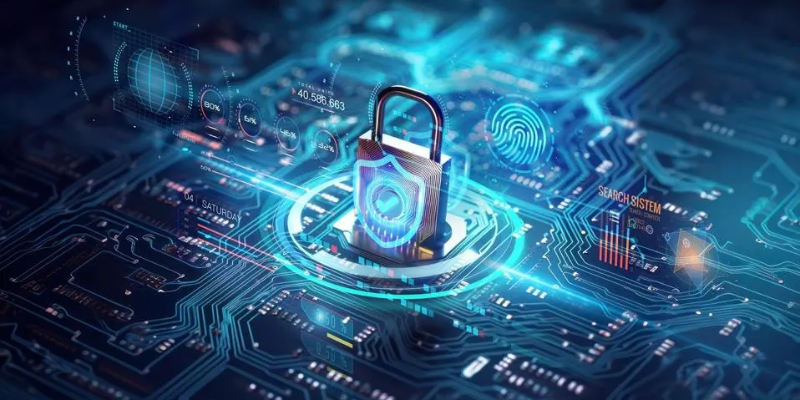How Ethical Hackers Protect Businesses from Cyber Threats?


In today’s hyper-connected world, businesses are more vulnerable than ever. From global enterprises to local startups, everyone relies on digital platforms to store data, process transactions, and operate smoothly. But with this digital convenience comes an ever-growing wave of cyber threats. This is where ethical hackers step in as the unsung heroes of the tech world.
You might be surprised to learn that the same techniques used by malicious hackers are also used to defend against them, but with one key difference: intent. Ethical hackers are hired professionals whose goal is to identify vulnerabilities before malicious actors do. That’s right ethical hacking is now one of the multiple in-demand and rewarding careers in cybersecurity.
If you’ve ever considered diving into this field, enrolling in the Ethical Hacking Course in Chennai could be your first step toward becoming a digital defender.
Unlocking the World of Ethical Hacking
So, what is ethical hacking really about?
Ethical hacking involves legally accessing systems to test their security against potential cyberattacks. These professionals, often directed to as white-hat hackers, utilise the same tools and strategies as malicious hackers but within legal boundaries and for a positive purpose.
The goal? To specify weak points in an organization’s security setup and recommend fixes before those gaps are exploited.
Ethical hackers conduct:
- Penetration testing
- Vulnerability assessments
- Social engineering tests
- Wireless and network security audits
They simulate real-world attacks so that businesses can shore up defenses before a real attacker strikes. If you’re curious about “what exactly happens behind the scenes,” this field offers an incredible journey into the world of cybersecurity, risk mitigation, and data protection.
Why Businesses Need Ethical Hackers
Cyber threats have become additional sophisticated and frequent in recent years. Ransomware, data breaches, phishing scams, and insider threats are just the tip of the iceberg. The average cost of a cyberattack for a business today is in the millions.
Here’s how ethical hackers help:
1. Identifying Vulnerabilities
Ethical hackers scan networks, applications, and devices for security holes. These can range from outdated software and weak passwords to misconfigured firewalls and open ports.
2. Simulating Attacks
They replicate the same techniques that black-hat hackers might use, such as SQL injection, brute-force attacks, and phishing, to understand how far a real attacker could get.
3. Reporting & Advising
After testing, ethical hackers report their findings and offer actionable advice. They’ll suggest patching software, reconfiguring networks, or training staff.
4. Preventing Legal & Financial Consequences
Early detection of security risks can prevent data breaches, lawsuits, and reputation damage.
Reasons to Become an Ethical Hacker
With cybercrime on the rise, the demand for ethical hackers is exploding across the globe. If you’re wondering whether this career pathway is right for you, consider these reasons:
- High salary potential and job security
- Opportunities across sectors like finance, healthcare, government, and IT
- A dynamic, constantly evolving field
- The thrill of solving real-world problems
An ethical hacking role combines curiosity, technical skill, and a strong sense of purpose. It’s one of the few careers where you get paid to think like a criminal but act like a hero.
If that excites you, a Cyber Security Course in Chennai can help you build the foundations needed for ethical hacking and beyond.
Tools & Techniques Used by Ethical Hackers
To secure businesses effectively, ethical hackers must stay ahead of malicious actors by mastering the latest tools and techniques. Here are some commonly used ones:
- Nmap: For network scanning and mapping
- Burp Suite: For testing web application security
- Wireshark: For network traffic analysis
- Metasploit: For penetration testing
- John the Ripper: For password cracking
Besides tools, soft skills like analytical thinking, attention to detail, and communication are equally important. After all, what good is a security assessment if the business can’t understand or implement your advice?
The Role of Training in Ethical Hacking
So, how do you become an ethical hacker?
The best way is to enroll in a hands-on program offered by a recognized Training Institute in Chennai. These programs teach:
- Basics of networking and protocols
- Scripting and programming (Python, Bash)
- Cyber law and compliance
- Real-time penetration testing
- Red team vs. Blue team methodologies
A quality institute will also help you prepare for globally recognised certifications, such as CEH (Certified Ethical Hacker) or CompTIA Security+, which will boost your credibility in the job market.
More importantly, they’ll train you to think critically, ethically, and creatively.
Ethical hackers aren’t just “tech geeks” playing with code; they’re digital defenders actively working to protect businesses from losing data, money, and trust.
In today’s connected world, businesses need more than antivirus software; they require ethical hackers who understand how real threats operate and how to counter them effectively.




